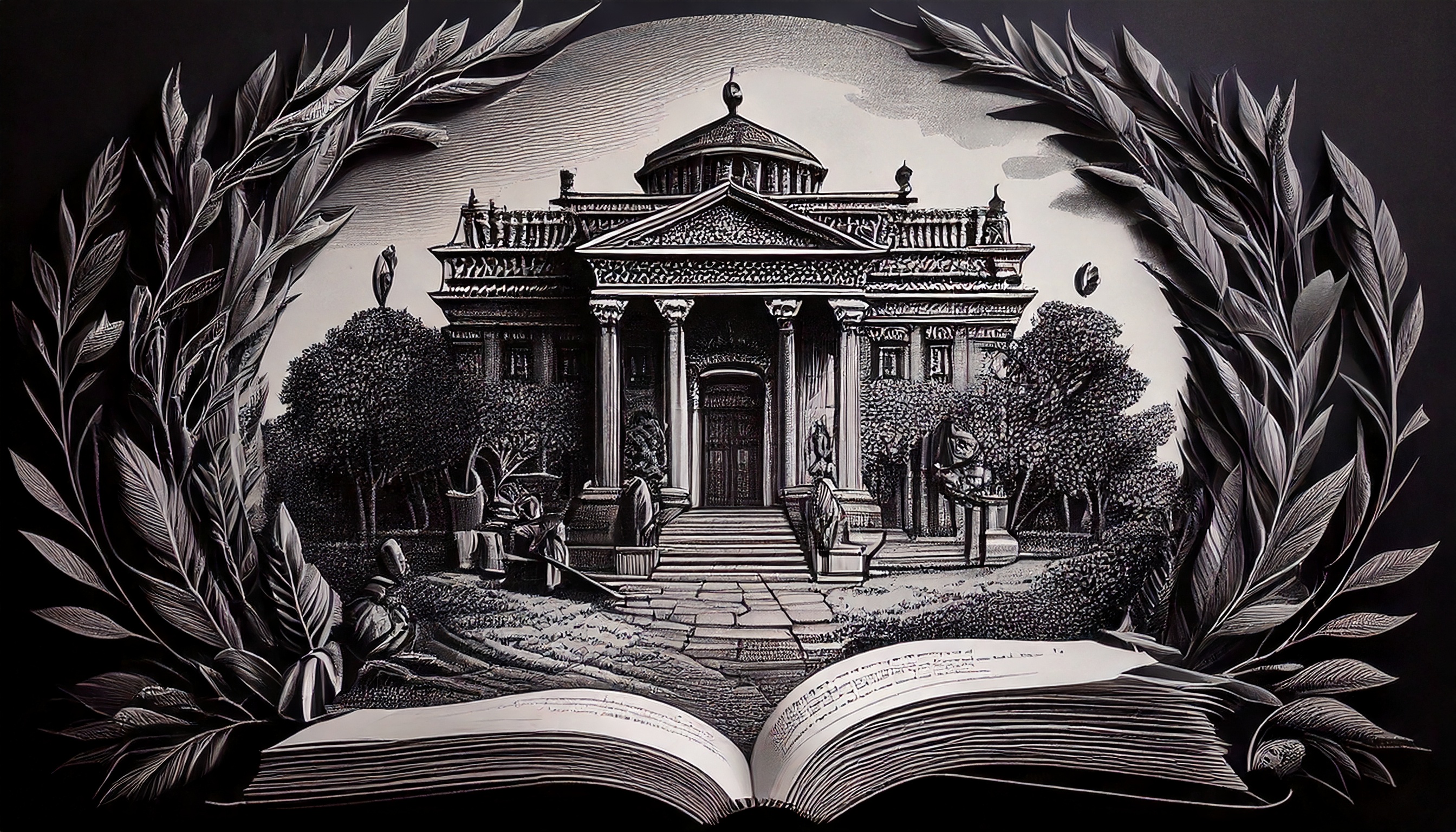Technically, the property in a revocable trust belongs to the trust, but ownership is tricky. Because a grantor can be the trustee of a revocable trust, and a trustee owns the property, meaning that the grantor still has ownership rights and control of the property within the revocable trust.

It’s a snake eating its own tail. The trust owns the property. But then you own the trust. And so you still sort of own the property, even though it’s not technically in your name. Sounds confusing? It can be.
But that’s why we’ve explained it all for you here. Let’s expose the revocable trust, how it works, and what happens to the ownership of the property within that trust. Let’s dive right in.
What is a Revocable Trust?
A revocable trust – also called a living trust – is a legal process that permits an individual (known as the grantor) to retain control of their assets while alive and designate who will receive the assets upon death. It is a flexible estate planning tool in that the trustor can modify, add, or revoke the trust at any time.
So, why do this? Simply put, a revocable trust helps your estate avoid probate court. The revocable trustor simply redirects ownership of assets away from someone to a trustee, which means those assets can be administered by the bank or trust company that owns them rather than through the court at death. That not only protects the assets but also gives assurances to the trustor that when they pass away their final wishes will be carried out without extra time or legal battles.

Revocable trusts might also provide significant value for individuals having complicated family dynamics or multiple beneficiaries. When the trustor lays out exactly how assets are to be distributed, it can reduce the chances of disputes between heirs and make certain that their wishes are expressed and honored.
Revocable Trust: Key Features
Certain features of a revocable trust include:
Flexibility:
The trustor can amend the trust if they wish to change any instructions they provided in establishing the terms of the trust.
Privacy:
Unlike wills that need to be probated after someone passes away (meaning the information generally being made public), revocable trusts are private documents.
Continuity:
If the trustor should become disabled, the trustee you have appointed can oversee and distribute assets in the trust for the benefit of the living expenses of the creator of the trust.
With all of these attributes, revocable trusts look like the right choice for many individuals who want to ensure a smooth transition of their assets to their beneficiaries. Revocable trusts can be used to hold titles to real estate, bank account assets, investment portfolios, business interests, and much more.
The flexibility allows grantors to pool their assets under a single roof, while still keeping control of the assets. All in all, it’s a tidy solution making the estate more organized to pass along after death.
Property Ownership in a Revocable Trust
It sounds neat and organized, but how does property work in a revocable trust? What does the grantor gain from having their property transferred into a revocable trust? And who owns the property if you transfer it out of your name?
The Grantor’s Property Rights In a Revocable Trust
In a revocable trust, the person named as the trustee owns all of the assets placed into the trust, but only for the benefit of the beneficiaries named in the trust. However, the grantor keeps control over the assets by placing themself in the role of the trustee. This allows the grantor to use, sell, or otherwise control these assets at will without the restrictions generally found with irrevocable trusts.

By retaining ownership, the grantor can access and use the income of the assets and make the final decisions about their disposal. The trustor is the primary decision-maker and can stipulate how they want assets to be dispersed among their beneficiaries.
In addition, the trustor may modify or revoke a revocable trust at any time, often making it an ideal "living" solution for adapting to new circumstances or preferences. This flexibility is especially appealing to anybody with changing financial circumstances or evolving family dynamics. Life changes, and so can your trust. That’s the selling point of the revocable trust.
Duties and Powers of the Trustee
The grantor appoints the trustee, who assumes all responsibilities in the management of those assets as laid out by a document. But remember that the grantor can appoint themselves as the trustee of a revocable trust.
The grantor still controls the assets while living, and the trustee, meanwhile, is tasked with ensuring the smooth operation of the trust upon the grantor's death.

The trustee’s roles include:
- Following the grantor’s instructions for managing the trust assets.
- Keeping accurate records of all trust transactions and communicating with the beneficiaries.
- The timely passing of the trust’s assets to beneficiaries.
The trustee ultimately serves the interests of the beneficiaries. This is their fiduciary duty above all else. This includes choosing investments that fit with the grantor's goals and updating beneficiaries about the health of the trust.
It’s important to select someone with the experience and trustworthiness to fulfill this role. This will ultimately affect the performance of your revocable trust.
Funding A Revocable Trust
Is the revocable trust hard to fund? Or is it difficult to transfer property into the trust? It’s quite a simple process. Here’s how it works.
The Process of Transferring Property
Transferring property to a revocable trust means taking ownership out of your name and putting the property into the trust. There are some legal steps to take to make this happen.
Creating the Trust Document:
That includes dictating the terms of the trust with a lawyer. You must state who the trustee is, how assets are transferred into the trust, how they’ll be managed, and who the beneficiaries are.
Titling the Assets:
Assets (like real property and bank accounts) also need to be retitled in the name of the trust by the grantor. This can often involve updated documents or contracts, such as deeds.
Notifying Relevant Parties:
It is important to tell the right institutions, like banks, the tax department, and insurance providers about the trust. Normally, this will be handled by your legal team. But it’s an important step so all your beneficiaries can receive what’s due to them.
You can always create a revocable trust and put all your assets into the trust while you’re still alive. And after you die, those assets, like your property and investments, get divvied up into as many compartments as you like.
The Kinds of Property That Could be Included
A revocable trust can hold all sorts of property. But be warned that because of its revocable nature, not all property is equally protected from creditors, lawsuits, or legal challenges.
- Homes and rental properties
- Checking, savings and certificates of deposit
- Brokerage & Trading Accounts
- Collectibles like jewelry and art
- Business interests and shares
The grantor will want to make sure that the assets are actually retitled in the new living trust so that it can provide all of the advantages. For example, when you transfer real estate into a trust, you’ll need to retitle the property to have a new owner.
Although revocable trusts may offer greater flexibility and control while the trustor is still alive, it must be understood that for tax purposes assets in a revocable trust are still considered part of your estate when calculating estate tax obligations. And courts also consider revocable trusts as open for creditors and lawsuits to lay claim to your assets. While a revocable trust works well to pass on assets, it’s not ideal for protecting your assets.
You may want to consult with a financial advisor or tax professional to discuss better ways to protect your assets from being taken from you if that’s a concern in your profession.
Rights and Limitations of Trust Beneficiaries
Remember how we said that the trust exists for the purpose of the beneficiary? These are some of the rights and roles of a beneficiary with the assets in the revocable trust.
Rights of the Beneficiary to Trust Property
Revocable trust beneficiaries do have some rights to the property within a revocable trust. In most cases, beneficiaries have the right to:
- Get the details of assets and financial position of the trust.
- Receive what the grantor had allotted for them from the trust assets after their death.
- Contest the terms of the trust if they think they should have been treated differently or if there is evidence of undue influence or lack of capacity.
Those rights have been designed to protect the interests of beneficiaries and to provide transparency on how trusts are managed. Furthermore, you can even request an accounting of the trust and all of its financial activities, like income, expenses, and distributions.
Restrictions and Limitations to Beneficiaries
Beneficiary rights have their own limitations as well. The trust document will frequently include specific terms, such as:
- Age distribution requirements – this means that beneficiaries must reach a certain age before they can get any distributions.
- No access to funds that are specifically outlined to be used for educational purposes.
- Limitations on the sale or transfer of trust assets before compliance with set standards.
These terms are designed to protect the assets, so they are used according to what the grantor had in mind.
Moreover, many trusts allow for some discretion from the trustee. You can leave it up to the trustee to determine when and how much to distribute depending on beneficiary needs or circumstances.
Comparing A Revocable Trust vs. an Irrevocable Trust
The revocable trust is just one option for asset management, and it has its limitations. On the other side of the coin, you have the irrevocable trust. Its design includes much more powerful protections and shelters for your assets. But the irrevocable trust limits the ownership of the property to the trust alone, meaning the grantor loses all ownership of their property once placed in the trust.
Differences in Ownership of Property
The trustor can have greater control of the assets in a revocable trust than in an irrevocable trust. That’s really the biggest difference between the two. In a living (revocable) trust, the grantor holds full control of the assets and is completely able to amend or revoke the trust. However, after assets are placed into an irrevocable trust, the grantor loses all control and ownership over those assets and cannot alter the terms of the trust.

But this is particularly good for tax purposes. For example, some irrevocable trusts will allow property in the trust to not be considered as part of your estate. Come tax time, that’s a significant decrease in what you owe to the government.
The irrevocable trust is best suited for individuals with a net worth of $10 million or more. These individuals can lessen their tax burden and reduce their estate tax. The irrevocable nature of these trusts can additionally provide peace of mind that the assets will not be subject to any future financial missteps or legal claims against you, as it is out of your hands.
Advantages and Disadvantages of each Trust Type
So, do you go with the revocable or the irrevocable trust? Each type of trust has its own benefits and drawbacks.
Revocable Trusts
Pros:
- It may allow the trust to be amended or even revoked.
- During the lifetime of the trustor, he has full control (including property “ownership”) over the assets.
- Prevents probate – which helps to get the assets distributed faster
Cons:
- Assets are still part of your estate so you don’t get tax benefits.
- The grantor must be alive to take assets out of any protection from creditors.
Irrevocable Trusts
Pros:
- Significant tax advantages for people with $10 million+ estate. Properties transferred out of your estate into the trust help lower property taxes.
- Provides creditor and lawsuit protection for assets
Cons:
- Not flexible once defined (hard to change).
- The assets will technically no longer belong to the grantor.
Both of your choices should consider your financial objectives, your family dynamics, and your long-term estate planning desires.
If you value the ability to adapt and have ownership of the property in your trust, you might favor a revocable trust. But if you want to have a smooth transition of your assets (including property ownership) to your beneficiaries, and get all the security of asset protection, then the irrevocable trust is your best choice.
Commonly, this type of decision comes down to whether you care more about security & taxation versus control.
Property in a Revocable Trust - Final Thoughts
Ultimately, this decision falls to you. You need to weigh up what matters to you. Do you care more about who owns the property in a trust? Does a revocable trust suit your need for flexibility and control? Or would you like to see your assets sheltered in a way that only an irrevocable trust can do?
It’s a big decision, so why not ask for help? Our team of experts will assess your situation and give you the guidance you need to create the right kind of trust to protect what matters to you.
Take this step today and we’ll be in touch to discuss your situation and tailor a solution that’s perfect for your family and your future.










